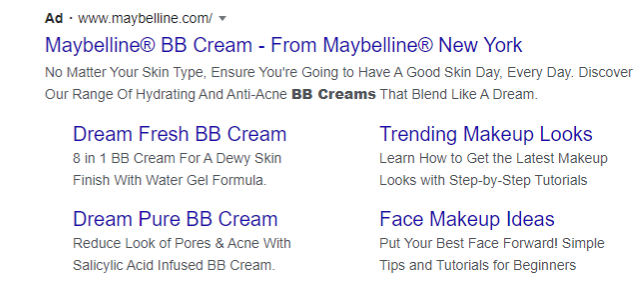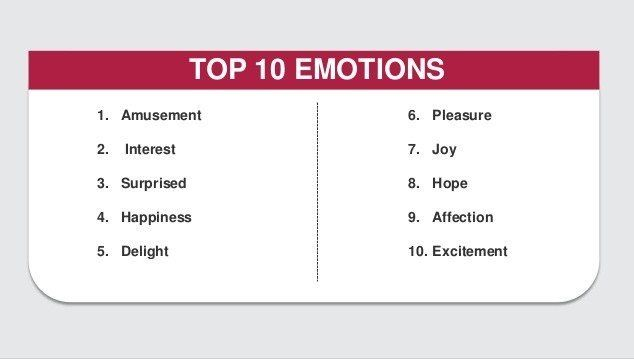Marketers and business owners alike know the inherent value of PPC ads. With 64.6% of consumers interacting with Google ads when online shopping, it’s no wonder PPC ad creation is growing exponentially.
While you may have aced your keyword research, gotten to know your budget intimately, and A/B tested relentlessly, your PPC campaigns may still be falling short of their desired goal.
How can you craft PPC ads that stand out from the crowd with such a highly saturated market?
Strong, compelling writing skills.These should be nurtured to drive conversions.
The Importance of Good Writing Skills for PPC Ad Copy
Google and Bing both reward superior writing with higher quality scores, earning you increased visibility and decreased cost per ad.
While lowered cost is always a good thing, the real importance of good writing skills for PPC ad copy is audience reach and interaction.
With limited character space at your disposal, you need your PPC ad copy to attract audience attention and hold that attention long enough to result in the desired reaction to your CTA.
Which component of your ad is attracting and holding that vital attraction?
Copy.
You need to ensure your copy is doing three things: working hard enough to earn that initial attention from your desired audience, speaking toward a specific pain point or need for that audience, and providing a clear, actionable CTA.
Without these three factors at work compellingly on the page, your PPC ad copy will more likely than not be lost to the ether of the internet.
How Can You Identify “Good” Writing in PPC and Ad Copy?
To best learn how to improve your own ad copywriting skills, look no further than existing ads that have achieved their purpose.
Maybelline Example:

Here, the purpose is simple: purchase the Maybelline BB cream.
The writer drives the searcher to this desired action through copy that is clear and concise.
The copy also draws on the emotional promise of “A good skin day, every day,” promising an ideal vision.
From selecting the CTA to the product description to the harnessing of emotion via the value proposition, this PPC ad is a lesson in strong writing skills.
Field Company Example:

On the other end of the product spectrum is an ad for a cast iron skillet from Field Company.
Here, the purpose is also to drive a purchase, but this ad is missing key components to make it successful.
This ad lacks a strong CTA and is not making a clear bid for the searcher’s next step.
While the writer takes a stab at an effective emotional trigger by sharing the organization’s family-owned background, this piece of information is not as compelling as the Maybelline advertisement.
Although these two ads offer customers quite different products, they harness the same writing skills to sell their product, relying on language to attract, hold, and, ideally, convert.
Writing Skills PPC Copywriters Should Have
Above all, the successful PPC copywriter must be deeply familiar with their target audience.
Successful identification of this audience and a deep understanding of their wants and needs is integral to success.
You may be the best writer in the world, but without a clear understanding of who you are speaking to, what you say doesn’t matter at all.
In addition to audience awareness, PPC copywriters should possess:
- Understanding of user experience
- Polished writing skills
- Marketing awareness
- Specialization
These four writing skills support the creation of direct, compelling content. By harnessing all these capabilities, writers can not only reach but also convert their intended audience.
5 Tips for Improving PPC Copywriting Skills
Some of the best ways to improve your writing skills is to make sure your copy speaks to what users are looking for during their buyer journey. Here are some of the top ways to make sure your writing is converting ads into paying customers.
1. Conversational Conversion Writing Skills
While the following tips all address the more technical aspects of honing writing skills for PPC ad creation, the most important factor to keep in mind is your audience.
You are speaking directly to a targeted individual, so you want to ensure all the crafted copy underlines this individual’s interests and challenges and solves the query they were, consciously or subconsciously, seeking.
This can be achieved by using shared language that is specific to your audience.
In this way, the best writers are also the best researchers. You need to truly understand the terminology associated with the product you’re trying to sell.
By incorporating terms specific to your chosen audience, you establish a silent rapport with your audience, building trust and interaction.
2. The Devil Is in the Details
Good writing is in the details. Whether you’re writing a CTA or crafting an ad in response to a history of search queries, you need to be specific and detail-oriented.
When you’re sharpening your writing skills for ad copy, you want to be sure to meet each search at its level of detail.
The more specific the search, the more precise the ad. By the same principle, the less specific the query, the less specific the copy.
Every time a search is queried, a potential customer is identifying what they want.
When you note the level of detail present and respond in kind, you’re infinitely more likely to satisfy that customer’s need.
3. Creating a Call-to-Action
Your CTA needs to do a lot of heavy lifting in your PPC ad copy.
It should be clear, direct, and concise. These conditionals that all rely on strong writing skills.
Remember specifics? They’re important here, too. Your CTA should specifically share what your intended action is for the would-be consumer.
Whether it is “read now” or “enter to win,” the potential customer needs to be clear on their next interaction with the PPC ad.
To sharpen awareness of that next step, be sure to start your CTA with a strong action word.
“Download,” “shop,” and “discover” are just a few examples of many verbs that can encourage your audience to take the intended action.
4. Emotional Charge Writing Skills
In addition to the specificity of action, it’s also important to inspire your audience with the specificity of emotion.
Everyone knows emotions can impact advertising success.
By using words that elicit enthusiasm or emotion, you incite a reaction in your audience, driving them to take the next step.
A Buffer analysis of the IPA dataBANK, which contains 1,400 case studies of ad campaigns, found that campaigns with emotional ad content performed twice as well as their rational counterparts.
Below are the top ten emotions to evoke when you’re writing ad copy:

The best ad campaigns harness this emotional power, so be sure to include emotionally charged language in your copy.
5. The Art of the Arc
Every good writer knows that every good story has a beginning, a middle, and an end.
This tenet shouldn’t only be present in narrative but also should exist in every piece of writing you execute.
Whether you’re crafting a tweet, an Instagram post, or a PPC ad, your copy should have a clear beginning, middle, and end.
As consumers, we’ve been taught this structure since infancy, so it’s a pattern we’re accustomed to recognizing.
When employed in your PPC ad copy, you create a familiar structure for your audience, allowing them to interact with the ad in a known way.
This familiarity is beneficial as it gives the reader an intuitive path to follow, which ends with the action explicitly stated in your expertly crafted CTA.
3 Tools to Improve PPC and Ad Writing Skills
If you’re looking for more guidance on sharpening your writing skills, there are plenty of resources available.
The Hemingway App helps identify clunky or overly complicated sentences, allowing you to be more concise and direct in your copy.
Try the Copyhackers’ Conversion Copywriting 101, a free course that teaches you how to prioritize purpose and conversion in your writing, regardless of medium.
To improve your headline prowess, check out the CoSchedule Headline Analyzer. This tool helps you optimize your blog headlines for maximum performance and can work for ads as well.
Conclusion
The tools and tips highlighted in this post can make your ads outshine those of your competitors and lend you a creative edge in drafting other marketing copy.
As you start getting more comfortable with these writing practices and deploying them in your work, you’ll see your PPC ads start to perform better than ever before.
After all, with practice comes PPC success.
What is the best PPC ad campaign you’ve seen?

